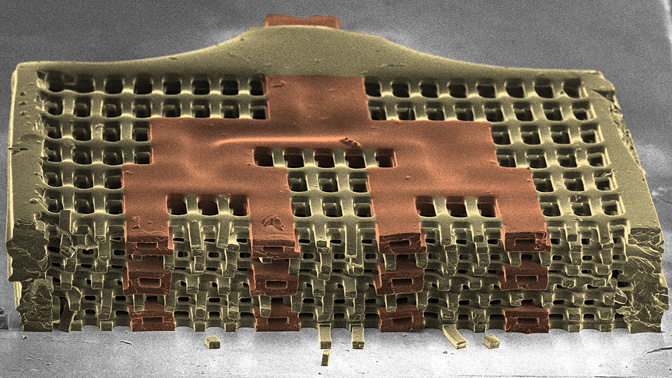Home page Description:
New device could pave the way for growing more realistic human tissues and organs in the lab.
Posted On: September 12, 2018

Image Caption:
With more realistic tissue platforms, such as the AngioChip, drug companies will be able to detect dangerous drug side effects and interactions faster.
The idea of creating functional organs in the lab is a dream that scientists around the world are racing to achieve. This is because lab-grown organs and tissues could offer a safer, faster and more economic way of testing for drug safety by eliminating the need for animal experiments and human clinical trials.
But before truly functional organs can be created in the lab, researchers need to overcome a key challenge: they need to find a way to integrate functional blood vessels into the organs.
A recent paper by Toronto General Hospital Research Institute Senior Scientist Dr. Milica Radisic has advanced the field by describing an alternative method of growing tissues in the lab, which generates functional blood vessels.
The method uses a small, intricate device—termed AngioChip—that is composed of extremely thin layers of flexible polymers. The layers contain channels, no wider than a human hair, that act like functional blood vessels. These vessels form a scaffold around which the organs and tissues can grow.
The team has successfully used this method to make miniature livers and hearts that function just like the ones inside the body. The researchers also succeeded in using AngioChip to connect two artificially made organs—a feature that will now enable unprecedented examination of interactions between two organs.
“AngioChip overcomes a major challenge in the field and solves many of the problems that researchers were facing when growing tissues in the laboratory,” explains Dr. Radisic. “We are working with industry partners to develop methods for largescale engineering of these tissues so they can be used by pharmaceutical companies and research labs worldwide.”
This work was supported by the Natural Sciences and Engineering Research Council of Canada, the Canadian Institutes of Health Research, the Heart and Stroke Foundation and the US National Institutes of Health.
Zhang B, Lai BFL, Xie R, Davenport Huyer L, Montgomery M, Radisic M. Microfabrication of AngioChip, a biodegradable polymer scaffold with microfluidic vasculature. Nat Protoc. 2018 Aug;13(8):1793-1813. doi: 10.1038/s41596-018-0015-8.

